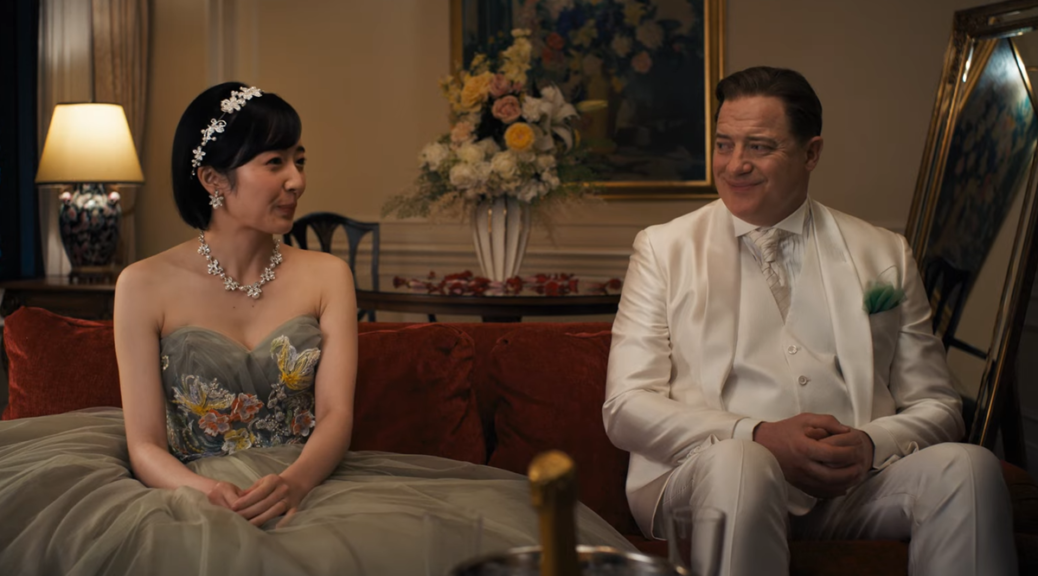Rental Family
by George Wolf
For the first few minutes of Rental Family, you’re not quite sure what it’s trying to be. Phillip, an American actor, is living and working in Japan, wearing funny suits in commercials to get by.
So, maybe fish-out-of-culture screwball comedy.
But then Phillip (Brendan Fraser) starts working at a company that “rents” whoever you need to make you feel better in a certain situation. The “Rental Family” firm needs a token white guy, and Phillip’s first assignment is playing a sad American at a funeral that results in a good laugh.
Still, maybe goofy comedy?
But at twenty minutes in, director and co-writer Hikari puts Phillip in an absolutely lovely human moment. As Phillip sees how good his work can make people feel, a possible warm drama of human connection comes into focus.
Hikari (Beef) and her writing partner Stephan Blahut base the film on real services for hire in Japan. To combat the stigma of mental health, the Japanese can “rent emotion” through actors playing roles in manufactured situations that make the clients seem more contented.
That is a sad necessity, for sure, and Fraser’s caring eyes and frequently furrowed brow speak loudly through various assignments. But as Phillip plays the father of a young girl trying to ace a school entrance exam, and then a reporter interviewing an aging actor who worries he’s been forgotten, the lines of fantasy and reality begin to blur.
Boundaries are crossed, secrets come to light and Phillip’s employer (the renowned Takehiro Hira) finds his entire business suddenly in jeopardy.
Hikari’s big heart is certainly in the right place here, but the film hits its highpoint with that early twenty minute moment. From there, the Oscar-winning Fraser is mainly held to one mopey note, and the emotional tone of the movie begins to feel a bit manipulative.
Mainly, Rental Family lands as a missed opportunity. There is potential here to spotlight a fascinating cultural commodity that parallels the manufactured reality of our social media age. What we get isn’t bad – in fact, it’s very nice – as long as you’re content with broad brushes and greeting card sentiments.






